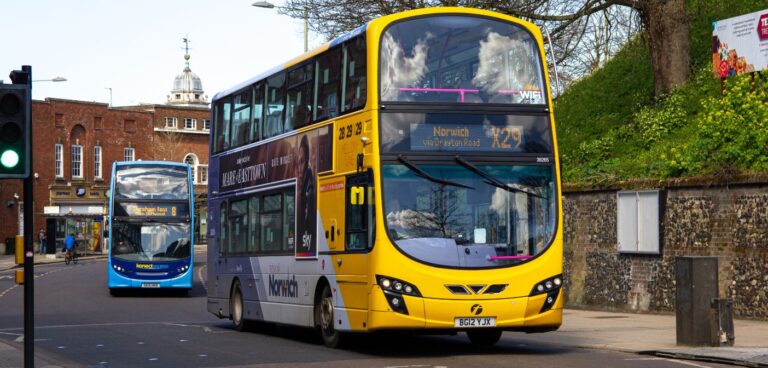Norfolk County Council has announced it will be considering further carbon-cutting transport schemes for the next financial year, after its highways and transport budget was increased by £29m from last year to £133m for 2023/24.
The council’s cabinet will be considering the budget at a meeting on Monday 6 March.
Inflation is expected to impact the council’s available funding but the authority’s highways and transport team will continue with plans to invest in carbon cutting transport strategies in alignment with its net zero carbon by 2030 goal.
“We’re investing £29m more than last year in this forward-looking funding plan designed to ensure we have strong infrastructure for our growing economy and a network that supports people to travel easily for work, study and leisure,” said Graham Plant, councillor and cabinet member for highways, infrastructure and transport.
“Cutting carbon continues to be a key focus for the highways and transport budget and we’ll be building on our journey towards net zero carbon through current and future schemes by spending millions to boost cycling and walking in towns across the county, delivering better public transport and putting more e-bikes and e-buses on our streets.”
The report that councillors will be considering summarises the three-year settlement following the UK government’s 2022 autumn statement and the proposed allocations for 2023/24/25/26. It likewise includes the successful progression of the 3rd River Crossing in Great Yarmouth, the Transforming Cities Fund in the Greater Norwich area and the Long Stratton Bypass.
According to the council, members will be updated on the improvements being made using the £10m investment in highway maintenance, which will see £2.4m spent in 2023/24 on key routes across the county.
What’s more, the council has won several competitive funding bids in the past few years, including £34.1m from the New Anglia Local Enterprise Partnership (NALEP), £38.1m from the Department for Transport’s Transforming Cities Fund (TCF) and £49.6m for its Bus Service Improvement Plan (BSIP).





